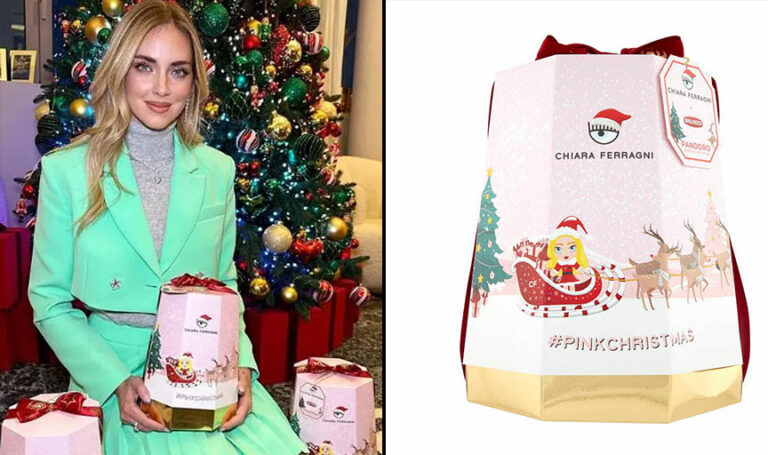Influencer Chiara Ferragni issues apology amid €1M fine for misleading charity Christmas cake sale
No, Chiara, you didn’t… Italy’s leading influencer, Chiara Ferragni, found herself issuing a profound apology this week after the country’s anti-trust authority imposed a fine exceeding €1 million (£930,000). The penalty was a consequence of misleading claims tied to the sale of a well-known Italian Christmas cake, where Ferragni asserted proceeds would aid children battling bone cancer.
View this post on Instagram
This controversy has generated substantial unfavourable attention for Ferragni, a globally renowned fashion influencer with close to 30 million followers on Instagram. Even Italian Prime Minister Giorgia Meloni voiced criticism over the weekend, contributing to the escalating public scrutiny surrounding the case.
“The real models to follow are not the influencers who make a lot of money by wearing clothes and showing bags… or even promoting expensive cakes that make people believe they are charitable,” Meloni stated.
What happened with Chiara Ferragni and Balocco’s deceptive advertising?
Why was Chiara Ferragni’s advertising deemed deceptive? The companies Fenice and TBS Crew, managing the influencer’s brands and rights, along with Balocco, allegedly promoted the ‘Pink Christmas’ pandoro (priced at two and a half times the regular pandoro) in a way that led people to believe that a portion of the proceeds would go to the Turin hospital to support research on two types of cancer and the purchase of a new machine.
In reality, Balocco had already donated money to the hospital in May 2022, well before Christmas of this year. Despite earning over €1 million from this move, Ferragni’s companies did not actually contribute to the charitable cause they promoted. As a result, Italy’s Antitrust imposed a €1 million fine on her company.
Additionally, the consumer rights group Codacons filed a complaint for aggravated fraud against consumers, urging the intervention of the Guardia di Finanza. Codacons requested the seizure of the accounts of Ferragni’s companies to safeguard consumers who purchased the branded pandoro.
What happened with Chiara Ferragni and Easter eggs?
Following the pandoro case, a precedent arose concerning Easter eggs. Cereali Italia, owner of the Dolci Preziosi brand, initiated a campaign for the association i Bambini delle Fate. This campaign allegedly collected €36,000 in donations, while Ferragni reportedly earned over €1 million for her involvement. The company initially proposed linking donations to Easter egg sales, as stated by Franco Antonello, founder of i Bambini delle Fate, but the company later denied this in a statement.
Chiara Ferragni’s apology video
To mitigate the controversy, Ferragni released a video apology that garnered significant attention. In the clip, she declared her intention to donate €1 million to charity, along with any difference between the requested and confirmed fine, if her appeal is successful. This could potentially lead Ferragni to contribute double the sanctioned amount, further amplifying the reputational damage she’s suffered from this controversy. The video drew attention not only for the apology but also for Ferragni’s strategic presentation without makeup and wearing neutral colours.
View this post on Instagram
The case sparked numerous reactions on social media from celebrities and politicians alike. Meloni criticised Ferragni during the Atreju festival, targeting influencers who promote products with misleading claims of charity. Massimiliano Dona, lawyer and president of the Unione Nazionale Consumatori (UNC), explained the Antitrust’s decision to fine Ferragni and Balocco for deceptive advertising, highlighting the potential severe reputational consequences for the influencer if the Antitrust’s reconstruction is confirmed.






